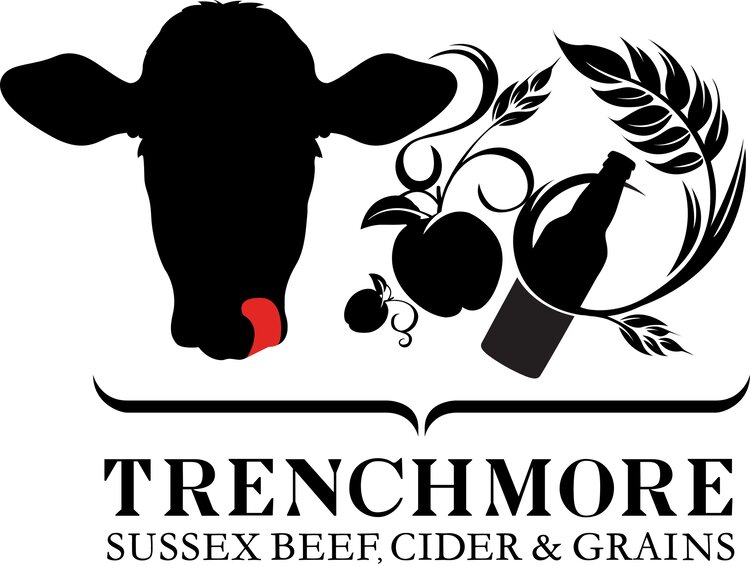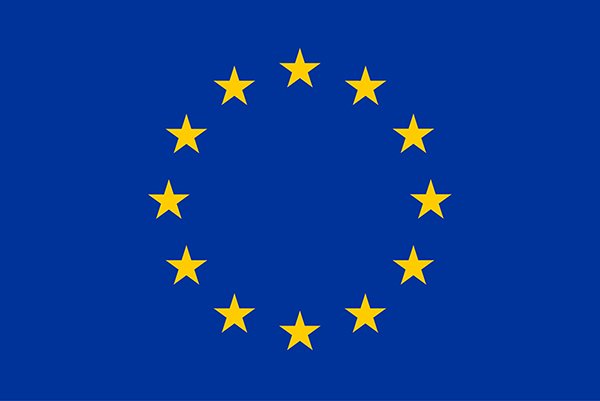Local, Delicious, Low Input* beef
Trenchmore's suckler Sussex Wagyu herd are slow grown and grass fed, spending the summer grazing the fields around the farm and the winter in our award winning Roundhouse Barn, specifically designed to keep the animals happy and healthy.
Farming sustainably is important to us. The cattle's finishing ration is based on grass and herbal ley silage and includes by-products of human food production; brewers grains that are high in protein from our local craft brewers, linseed cake from oil pressing that helps to boost omega-3, molasses to provide a sustainable source of energy and trace minerals needed for healthy animals and straw from our wheat harvest to provide fibre and improve rumen function. And of course, the apple pomace from our cider production each autumn.
Grass is the most important part of their diet. This is grown both on our permanent pasture fields, which produces mixed grasses from fields that could not grow another crop viably into food we can eat, and our herbal leys, which are part of our 6 year crop rotation and used to help restore fertility and soil structure.
Mixed farms that use ruminants to turn grass into food and improve soil structure are becoming recognised as being at the forefront of sustainable farming. Using animals to turn grasses into meat and help build nutrient levels in the soil means we can minimise artificial fertiliser use and maximise local quality food production.
We know people want consistently delicious meat - by selective breeding, our high welfare approach and enhanced nutrition we strive to achieve this. We are learning a lot and are delighted with the feedback so far.
* What we mean by low input:
We practice minimum tillage
Suckler herd
80% grass fed from our permanant pasture (soil not good enough to grow anything else) and herbal leys (soil improving, nitrogen fixing)
20% fed bi-products of human food production
Paddock grazed - cattle are moved around the farm eating grass, trampling it in and fertilising the soil as they go which encourages optimum grass production and carbon capture
Winter farmyard manure is composted over the summer and spread on the soil to minimise inputs
We work with a local abattoir, local butcher and supply local customers
Come and see for yourself when you collect your beef.
We’re grateful to have received some support from the European Agricultural Fund for Rural Development, which enabled us to install better animal management and welfare systems. This included a 40% contribution to the cost of a cattle handling system, solar powered electric fencers, extended wifi coverage and the Happy Cow brush.
Cheers EAFRD!





